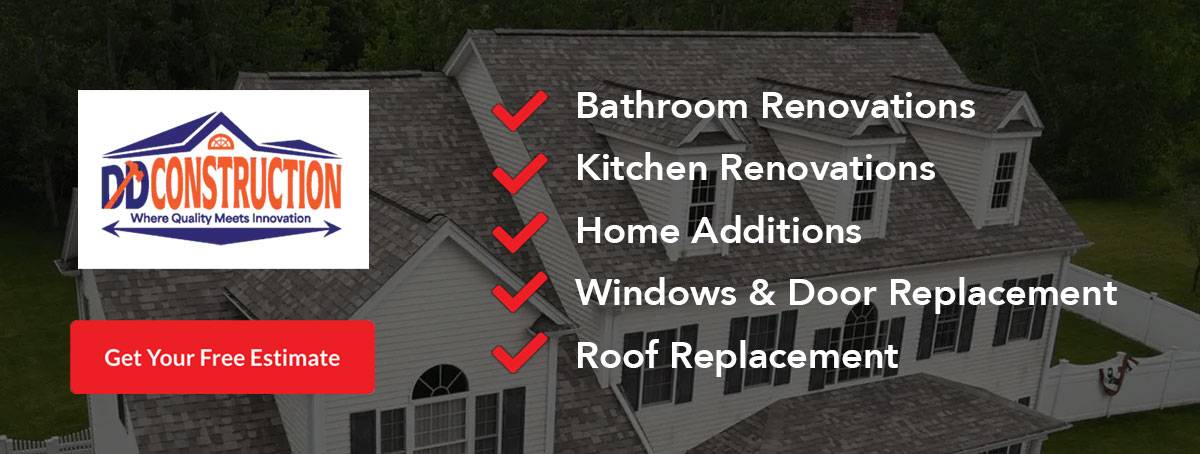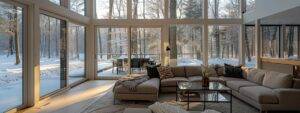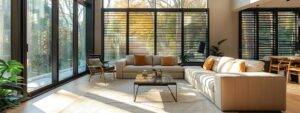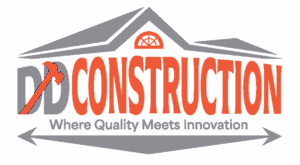Upgrading windows in your home is one of the most effective ways to boost energy efficiency, enhance curb appeal, maximize comfort, and increase property value. Massachusetts homeowners are increasingly focused on sustainable, cost-effective, and visually appealing window solutions that align with modern design and energy standards. Replacing outdated windows improves thermal performance, lowers monthly energy bills, and enhances both the aesthetic and market value of a property. Many experts, including dd construction, recommend these advancements as an essential part of home improvement. With ever-improving technology, manufacturers now offer options—from energy-efficient double- or triple-paned windows to advanced Low‑E coatings—that ensure optimal performance in harsh New England weather while meeting programs such as Mass Save.
This article reviews the benefits of window replacement for Massachusetts homeowners, explains technical factors influencing window performance, outlines the professional replacement process, and provides guidance for choosing the best window contractor. It also examines cost factors and financing options to help you make an informed decision that enhances your home’s comfort, aesthetics, and energy efficiency while reducing greenhouse gas emissions and taking advantage of tax credits for energy‑efficient improvements.
What Are the Top Energy Efficiency Benefits of Window Replacement?
New energy‑efficient windows dramatically reduce heat loss in the winter and keep unwanted heat out in the summer. They achieve this through advanced glazing technologies, improved frames, and sealed construction that minimizes air leakage. Upgrading to double or triple‑paned windows can lower energy bills by 10%–15%, and reduce reliance on HVAC systems, lessening both energy consumption and mechanical wear.
By combining low‑emissivity coatings with gas fills such as argon or krypton, these windows lower energy consumption and create a smaller carbon footprint. Programs like Mass Save offer rebates on energy‑efficient installations, further reducing costs and promoting sustainable improvements.
Moreover, energy‑efficient windows help maintain a stable indoor environment, protecting interior furnishings from temperature fluctuations and reducing outdoor noise. The table below summarizes key features and benefits:
| Feature | Benefit | Energy Savings | Environmental Impact |
|---|---|---|---|
| Double/Triple-Paned Glazing | Reduced heat loss/gain | 10%–15% lower energy bills | Lower greenhouse gas emissions |
| Low‑E Coating | Reflects infrared heat; improves insulation | Consistent interior temperatures | Reduces HVAC dependency |
| Gas Fills (Argon/Krypton) | Superior insulation properties | Enhanced overall performance | Promotes energy conservation |
| Sealed Construction | Minimizes air leakage | Reduced drafts and energy loss | Contributes to a more sustainable home |
These technical enhancements deliver both tangible economic advantages and a healthier, more comfortable living environment, resulting in higher home energy performance and reduced operating costs.
How Do Energy-Efficient Windows Reduce Home Energy Bills?
Energy‑efficient windows reduce heat transfer between your home and the outdoors, stabilizing indoor temperatures which decreases the workload on heating and cooling systems. Modern windows use multiple glass layers with inert gas fills and low‑emissivity coatings to form an effective insulating barrier. Homes with upgraded window systems may see up to a 15% reduction in energy consumption, resulting in lower monthly bills and extended HVAC lifespan. Additionally, many Massachusetts programs offer rebates and tax credits that further offset the initial replacement cost.
What Is the Role of U-Factor and R-Value in Window Performance?
Window performance is measured by the U‑factor (rate of heat transfer) and the R‑value (resistance to heat flow). Lower U‑factors and higher R‑values indicate better insulation. For Massachusetts, a U‑factor below 0.30 is recommended to minimize heat loss during cold spells and prevent excessive heat gain in summer. Manufacturers list these values to help homeowners choose windows that meet Energy Star ratings and provide long‑term performance benefits such as energy savings and improved comfort.
How Do Energy Star Certified Windows Improve Home Comfort?
Energy Star certified windows meet strict performance guidelines to reduce energy consumption while enhancing indoor comfort. They mitigate temperature fluctuations and drafts, keeping your home consistently warm in winter and cool in summer. Advanced features like vacuum‑insulated glazing and optimized spacer technology ensure high performance even in extreme conditions, while also reducing condensation and the likelihood of cold spots. Lower humidity and UV filtering further protect interiors—all contributing to a stable, comfortable environment and lower energy expenses.
How Does Window Replacement Enhance Your Home’s Curb Appeal and Value?
Replacing old, inefficient windows enhances the exterior appearance and market value of your home. Modern windows offer clean lines, improved framing, and sleek designs that instantly modernize a home’s facade while complementing its architecture. They not only boost curb appeal but also signal quality home improvements to potential buyers, ensuring higher resale value.
Well‑selected windows improve both energy efficiency and aesthetics. For example, casement or awning windows can enhance historic New England styles, while slider windows add a contemporary touch. Overall, upgraded windows convey proactive maintenance and can reduce future renovation concerns—helping homeowners achieve a higher selling price.
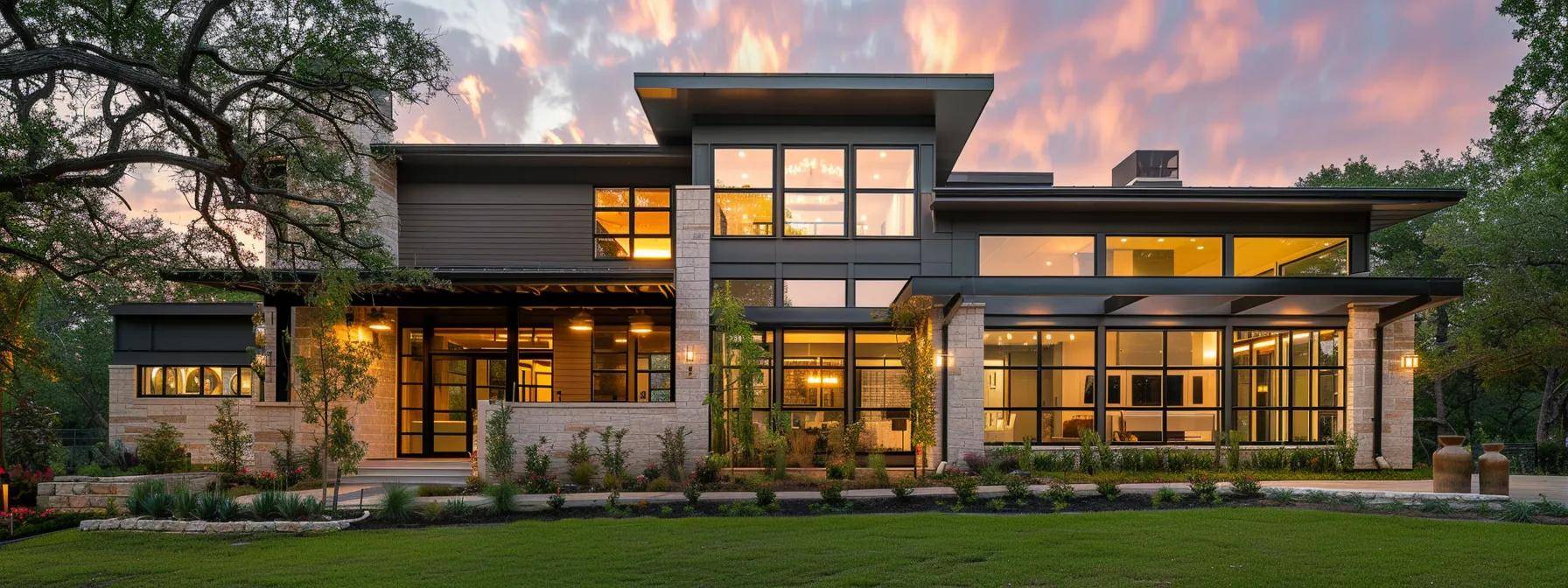
What Window Styles Best Boost Exterior Appearance?
Window styles such as double‑hung, casement, sliding, bay, and bow windows each add a unique character. Bay and bow windows create a three-dimensional effect that increases natural light and invites expansive views, while casement windows offer excellent ventilation with a streamlined appearance. Double‑hung windows provide timeless appeal and ease of maintenance. In addition, choices in color, frame material (like elegant wood or low‑maintenance fiberglass), and finish all significantly impact a home’s exterior aesthetic.
How Does New Window Installation Increase Property Value?
New window installations enhance property value by improving energy efficiency and aesthetics. Modern windows reduce heat loss and lower energy bills, features that attract buyers willing to pay a premium for well‑maintained homes. Updated windows also reinforce a home’s overall condition, reassuring potential buyers about maintenance and future performance. Market studies show that many homeowners recoup a significant percentage of their window replacement investment at sale.
Which Window Materials Offer the Best Look and Longevity?
Popular window materials include vinyl, wood, and fiberglass. Vinyl windows are affordable, low‑maintenance, and offer excellent insulation. Wood windows provide a classic, elegant look that many historic or upscale homes favor, though they require more maintenance. Fiberglass windows combine durability with a modern appearance and low thermal conductivity, making them ideal for harsh weather. Each material offers advantages in energy efficiency, noise reduction, and longevity, so the choice depends on your home’s climate, architectural style, and budget.
What Are the Noise Reduction and Comfort Advantages of New Windows?
Modern windows improve indoor comfort by reducing external noise and enhancing insulation. Engineered with thicker glass, laminated safety glass, and advanced frame designs, they significantly lower noise levels from traffic and other disturbances. This soundproofing, combined with improved ventilation and natural light control, helps maintain consistent indoor temperatures and minimizes drafts and cold spots.
The table below outlines key comfort advantages:
| Advantage | Description | Benefit | Impact |
|---|---|---|---|
| Noise Reduction | Multi‑pane designs block external noise | Up to 50% decibel reduction | Quieter indoor environment |
| Improved Insulation | Minimizes drafts | Consistent temperatures | Enhanced thermal comfort |
| UV Protection | Low‑E coatings filter UV light | Prevents furniture fading | Preserves interior aesthetics |
| Enhanced Ventilation Control | Optimized design for proper airflow | Better humidity regulation | Improved air quality |
These improvements result in a more peaceful, comfortable home and lower reliance on heating and cooling systems.
How Do Modern Windows Reduce Outside Noise?
Modern windows reduce noise through multiple panes of glass, inert gas fills, and acoustic laminated glass with a vinyl interlayer that dampens vibrations. Improved sealing minimizes gaps that allow sound infiltration. As a result, studies indicate that modern, well‑installed windows can reduce external noise by 40–50%, leading to a more peaceful indoor environment.
What Window Features Improve Indoor Comfort Year-Round?
Key features that enhance comfort include multi‑layer insulated glass, robust frames, and advanced weatherstripping to reduce drafts. Low‑emissivity coatings control solar heat gain, preventing overheating and glare while protecting interiors from UV damage. Some windows also offer integrated ventilation systems to regulate humidity and airflow. Together, these features create a stable and inviting indoor environment regardless of seasonal changes.
What Is the Typical Window Replacement Process for Homeowners?
The window replacement process generally follows several key steps. First, a professional contractor assesses your current windows, discusses design preferences, energy goals, and budget. A detailed plan is then developed, outlining the window types, installation timeline, and scope of work.
Next, precise measurements are taken to ensure proper fit. The old windows are removed and any necessary repairs to the window openings are made. Then, new windows are installed following manufacturer guidelines to ensure correct alignment, sealing, and insulation. Finally, finishing touches such as caulking, trim installation, and cleanup complete the process. This systematic approach minimizes complications and maximizes performance and aesthetics.
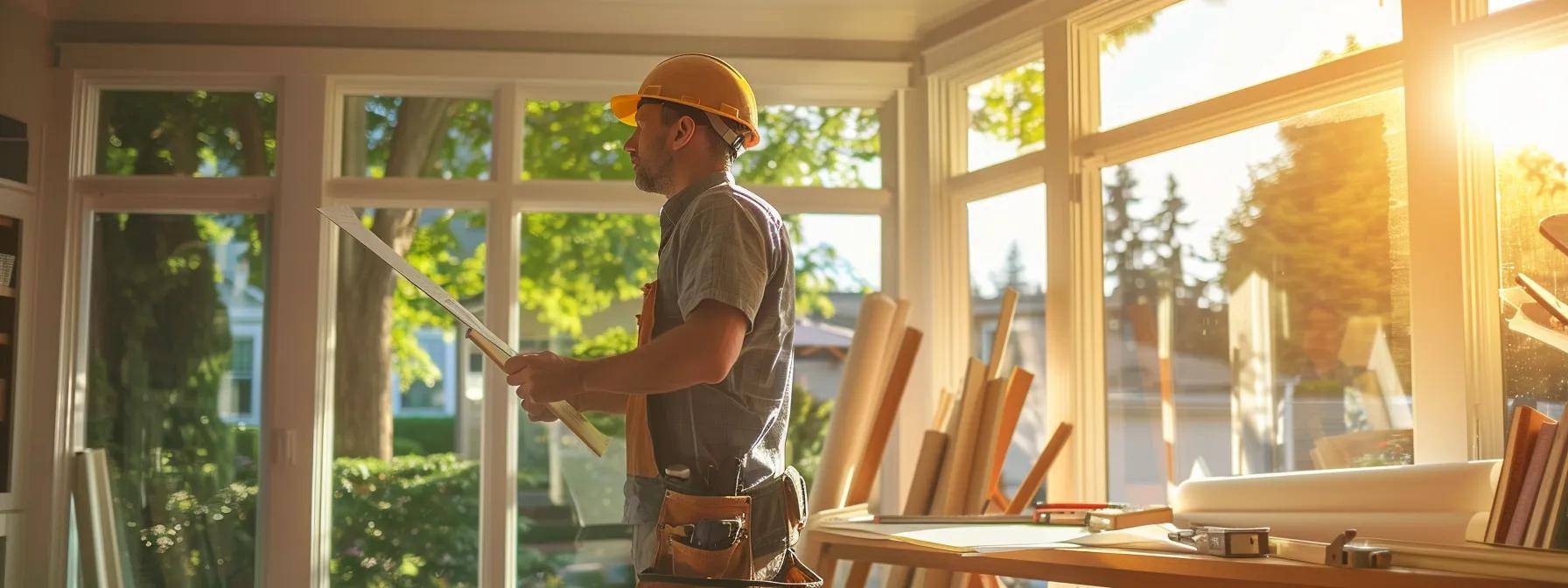
How Does Professional Installation Ensure Window Performance?
Professional installation is critical because experts follow precise specifications to align, seal, and insulate windows correctly. Proper installation minimizes air leakage, maximizes energy efficiency, and secures windows safely. Skilled installers can also address unexpected issues during removal or preparation, ensuring a long‑lasting and high‑performance installation.
What Are the Steps From Consultation to Final Installation?
The process begins with a consultation to discuss needs, preferences, and budget, followed by detailed measurements and site assessments. After planning, old windows are removed and any necessary repairs are made. New windows are then installed with careful attention to alignment and sealing, and finishing touches such as caulking and trim are applied. A final inspection ensures that the work meets industry standards and homeowner satisfaction.
How Long Does Window Replacement Usually Take?
For most residential projects, window replacement takes between one and two weeks, though the timeline may vary with the number of windows and installation complexity. Factors like weather and model availability can also affect the schedule, but professional contractors typically communicate timelines and potential delays clearly to minimize disruption.
How Can Homeowners Choose the Best Window Replacement Company in Massachusetts?
Choosing the right window replacement company involves thorough research and evaluation of past performance and local expertise. Look for companies with strong reputations for quality craftsmanship and excellent customer service, as well as a deep understanding of Massachusetts weather and building codes. Local contractors are familiar with regional challenges such as severe winter weather and humidity, ensuring durable and energy‑efficient installations.
Reputable companies, such as DD Construction, offer detailed consultations, transparent pricing, comprehensive warranties, and strong follow‑up support. Request multiple quotes and check credentials, including licenses, insurance, and customer reviews. Independent reviews and references provide additional insights into a contractor’s reliability and overall performance.
Why Is Local Expertise Important for Massachusetts Homeowners?
Local expertise is crucial because contractors familiar with the regional climate, local building codes, and architectural styles can offer tailored recommendations and solutions that meet Massachusetts-specific challenges. Experienced local contractors know which products perform best in harsh winters and humid summers and are well‑versed in navigating local permit requirements and safety regulations.
What Questions Should You Ask Window Replacement Contractors?
Before hiring a contractor, ask about the specific window models they recommend and their performance metrics (U‑factor and R‑value). Inquire about the project timeline, warranty details, and financing or rebate options. Also ask for examples of past work, customer references, and their process for handling unexpected issues during installation to ensure a reliable and comprehensive service.
How Do Customer Reviews Reflect Quality and Satisfaction?
Customer reviews provide valuable insights into a contractor’s quality of work, punctuality, and the long‑term performance of installed windows. Look for consistent high ratings and detailed testimonials mentioning energy savings, improved curb appeal, and overall customer satisfaction. Independent review platforms and local references help validate a contractor’s reliability and workmanship.
What Are the Cost Considerations and Financing Options for Window Replacement?
Window replacement costs in Massachusetts vary based on window type, material quality, unit size and number, and installation complexity. Although energy‑efficient windows may have a higher upfront cost, they offer long‑term savings through lower energy bills and improved insulation. Labor costs also differ by region and contractor.
Key cost factors include design and architecture, required modifications, and whether custom sizes or styles are needed. Premium materials like fiberglass or wood may cost more but can offer superior aesthetics and performance. Financing options—including personal loans, home improvement financing, and state or local incentive programs such as Mass Save rebates and tax credits—can help reduce initial expenses.
The table below compares common cost factors:
| Factor | Impact on Cost | Financing/Benefits | Considerations |
|---|---|---|---|
| Window Material | Varies; premium materials cost more | Extended warranties; energy rebates | Balance aesthetics with energy efficiency |
| Energy Efficiency | Higher cost for high performance | Potential tax credits; Mass Save rebates | Long‑term savings through reduced energy bills |
| Installation Complexity | More complex installations cost more | Home improvement loans | Accurate measurements influence pricing |
| Number of Windows | Directly proportional to cost | Bulk discounts available | Replacing multiple windows can yield cumulative savings |
| Custom Designs/Styles | Custom orders incur extra fees | May raise resale value | Choose designs that complement home architecture |
Analyzing these factors and exploring available financing options allows homeowners to balance immediate costs with long‑term benefits while ensuring quality installation.
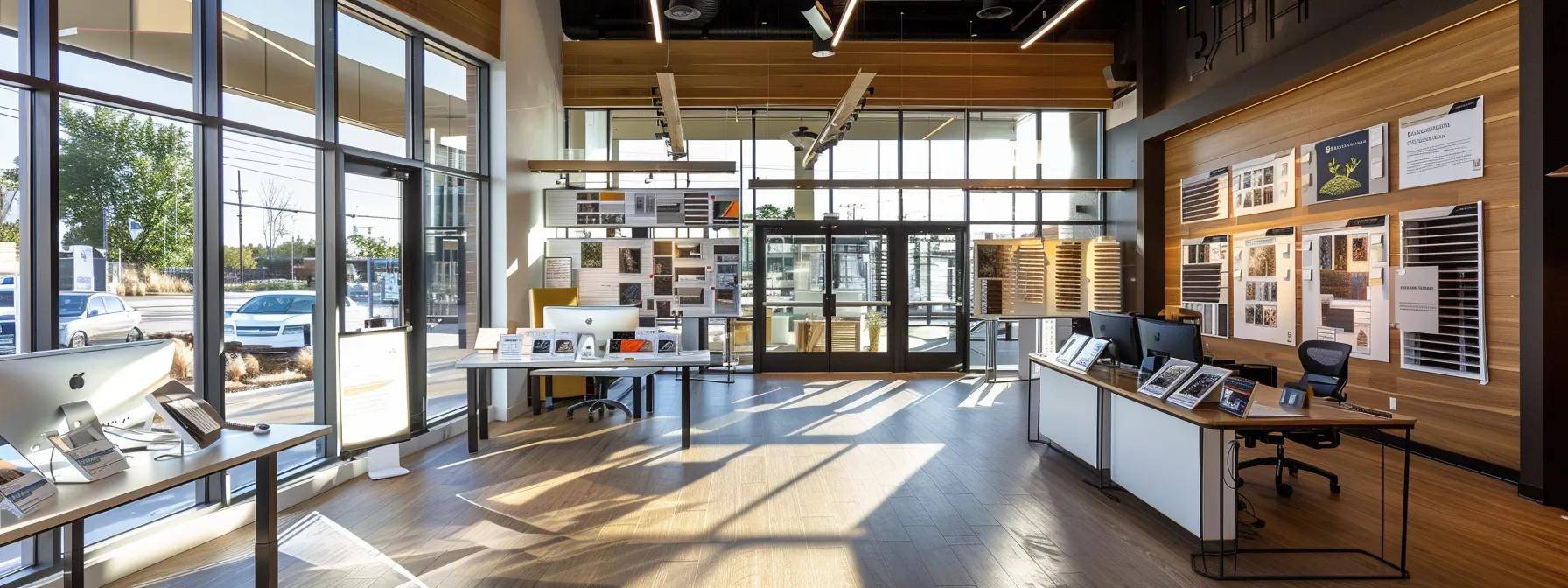
How Much Does Window Replacement Typically Cost in Massachusetts?
In Massachusetts, window replacement typically costs between $300 and $1,000 per window, with an all‑inclusive project (materials and labor) averaging from $5,000 to $20,000 for a standard home. Higher‑end or custom designs may cost more, but energy‑efficient windows save money over time through lower utility bills. Taking advantage of state incentives, rebates, and tax credits can also significantly reduce the overall expense.
What Factors Influence Window Replacement Pricing?
Pricing varies based on window material, energy efficiency, installation complexity, and the number of windows replaced. Premium materials such as wood or fiberglass tend to be more expensive, while vinyl windows offer a cost‑effective option without sacrificing quality. Local labor rates, necessary structural modifications, and additional services like disposal and cleanup further impact overall costs.
Are There Tax Credits or Incentives for Energy-Efficient Windows?
Yes, Massachusetts homeowners may be eligible for various tax credits and rebates when installing energy‑efficient windows. Programs like Mass Save offer financial incentives that reduce installation costs, and federal tax credits may also be available. Homeowners should ensure their chosen windows meet required energy efficiency standards and obtain necessary documentation to qualify for these incentives.
What Are the Best Window Styles and Materials for Massachusetts Homes?
Massachusetts homeowners can choose from a variety of window styles and materials based on aesthetics, durability, energy efficiency, and maintenance needs. Vinyl windows offer low maintenance and excellent insulation, wood windows provide a classic look with natural warmth, and fiberglass windows combine durability with modern performance.
Window styles range from traditional double‑hung and casement to contemporary sliding and picture windows. Double‑hung windows are easy to clean and versatile, while casement windows ensure superior ventilation and a sleek aesthetic. Bay and bow windows add depth and enhance natural light, making them ideal focal points in living areas.
What Are the Benefits of Vinyl, Wood, and Fiberglass Windows?
Vinyl windows are popular for their affordability and low upkeep, while maintaining excellent thermal performance with features such as Low‑E coatings and gas fills. Wood windows deliver a timeless, elegant look highly favored in historic homes, though they require regular maintenance. Fiberglass windows offer the durability of modern materials combined with superior energy efficiency and resistance to extreme weather, making them well‑suited for New England climates.
How Do Different Window Styles Affect Functionality and Appearance?
Different styles impact both performance and aesthetic appeal. Traditional double‑hung windows offer a classic design and ease of operation, while casement windows provide maximum ventilation and an unobstructed view. Sliding windows contribute a modern look with smooth operation, and bay or bow windows add visual interest and allow more natural light, creating expansive interior spaces.
How to Match Window Choices to Your Home’s Architecture and Climate?
Choosing the right windows involves balancing your home’s architectural style with local climate conditions. Traditional homes may benefit from classic double‑hung or wood‑framed casement windows enhanced with decorative grilles. For modern homes, minimalistic sliding or picture windows often complement clean, geometric lines. In Massachusetts, where winters are harsh and summers humid, selecting windows with low U‑factors and high R‑values ensures reliable insulation and energy savings year‑round.
Frequently Asked Questions
Q: What energy-saving improvements can be achieved with window replacement? A: Energy‑efficient windows reduce heating and cooling costs by up to 15% by minimizing heat transfer, stabilizing indoor temperatures, and lowering HVAC usage. They also reduce noise levels and enhance overall comfort.
Q: How do I determine which window material is best for my home? A: Consider your home’s style, maintenance preferences, and energy efficiency needs. Vinyl is cost‑effective and low‑maintenance, wood provides a traditional and elegant look, and fiberglass offers durability and modern performance—especially in harsh climates.
Q: What financing options are available for window replacement projects? A: Massachusetts homeowners can explore personal loans, home improvement financing, and incentive programs like Mass Save. Tax credits and rebates for energy‑efficient upgrades can also help manage upfront costs.
Q: How long does the window replacement process typically take? A: Depending on the project’s complexity and number of windows, replacement usually takes from a few days up to two weeks, with professional contractors providing clear timelines.
Q: How do Energy Star certified windows improve home comfort? A: Energy Star windows maintain stable indoor temperatures, reduce drafts, filter UV rays, and lower energy consumption, resulting in enhanced comfort and reduced heating and cooling costs.
Q: What questions should I ask my window replacement contractor? A: Ask about recommended window models, U‑factor and R‑value ratings, project timelines, warranty details, financing options, previous work examples, and how they handle unexpected issues.
Q: Can new windows help increase my home’s resale value? A: Yes, installing new, energy‑efficient windows boosts curb appeal and resale value by improving energy efficiency and the overall condition of the home. Studies show that many homeowners can recoup a significant portion of their investment through increased market value.

